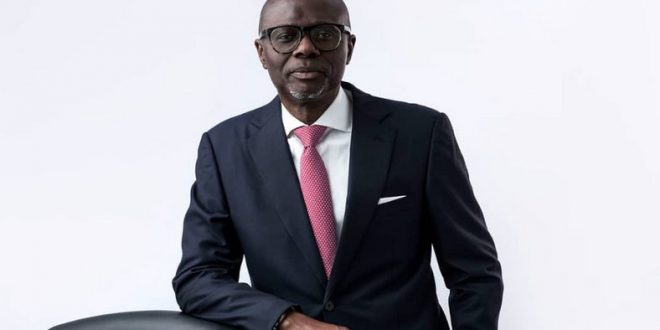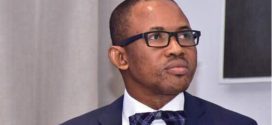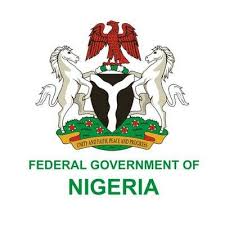Sonala Olumhense’s June 25 article published in “The Punch” with the above headline makes interesting reading but it is wide off the mark in its assessment of Lagos. It was based largely on the Economic Intelligence Unit’s yearly report on cities, which has been variously described in well-informed circles as “dubious” and “misleading”.
Why the respected writer, instead of displaying his knowledge of Lagos, a city he left decades ago to seek the greener pasture after a remarkable journalism career, chose to parrot the EIU’s report and use it as a springboard to lash Lagos State and its governors is puzzling,
Like other growing cities around the world, Lagos has its challenges. But the challenges are being tackled with boldness, creativity and wisdom. This approach points to a glowing future for Lagos.
One of its challenges is its incredibly low population-to-revenue ratio. It is the smallest of all the 36 states in terms of land mass, occupying only 3,234 square kms or 0.5 per cent of Nigeria’s land mass. Of this, 25 per cent is water. Yet, Lagos is the highest populated state in Nigeria, with about 25 million inhabitants. People flood in everyday – no thanks to insecurity and other challenges in many other states as well as the West Africa sub-region. In fact, the state has been described as a victim of its own success, with so much pressure on its infrastructure.
Of the 25 million residents, only about 6 million are taxpayers. Of this figure, only about 4.2 million are active taxpayers. They are mostly those in the Pay-As-You-Earn (PAYE) system, earning monthly wages. The big men who ride big vehicles and live in big homes where they throw big parties for big people pay little – many do not pay at all. What Lagos earns that has made it a punching bag for financial and economic wannabes is not up to the yearly budget ($2.17b in 2022 or N1.313trn) of the Fire Department of New York City (FDNY), for example.
Yet, with its about N50b monthly revenue, the government is expected to turn the state into a paradise. That is impossible. But the huge infrastructural developments and the enviable advancements in the economy, which have made Lagos the most attractive investment destination in Africa, cannot be discounted.
Olumhense based his criticism on two basic metrics on which he thinks Lagos has not fared well – traffic management, and flooding. Before Governor Babajide Sanwo-Olu mounted the saddle, he had a clear view of what he wanted to do. The first pillar of his THEMES Agenda – the six-pillar development plan for the state – is Transportation and Traffic Management.
Of the 60 gridlock points identified, 41 have been resolved; 13 are in the works and six are on the drawing board. Six troublesome roundabouts have been reconfigured – at Allen Avenue, Maryland, Ikotun, Lekki 1 and Lekki II, and Ajah.
Now, driving on Allen Avenue and Maryland is a smooth experience. Gone is the crippling congestion. In less than four years, more than 970 roads and 15 bridges have been built. They include the 1. 4 km Pen Cinema Bridge, the 42-year-old two-lane Eleko- Epe T-Junction 18.75km six-lane rigid pavement expressway.
Lagos has about 9,040 roads. The government can’t pave them all in four years, but the Public Works Corporation (PWC) is working day and night, even as it issues daily bulletins of its work schedule on the social media.
Lagos has realised its age-long dream of having train services. The Red Line and the Blue Line (first phase) are ready. The Blue Line, which will be running from Marina to Okokomaiko (when the second phase is completed) will reduce a two-three hours tough journey to a 30-minute smooth and exciting experience. The Red Line, which the Sanwo-Olu/Hamzat administration started on August 15, 2021, will be running from Oyingbo to Agbado (first phase), shortening a three hours bumpy journey to about 30 minutes pleasure ride. The Lagos State Waterways Authority (LASWA) has a fleet of 21 ferries, up from seven in 2019.
As I write this, I am on a flight from Chicago to Paris. I almost missed the flight because of the heavy traffic on the road to O’Hare Airport. The one-hour journey took almost three hours – even on a Sunday.
The human element in the Lagos traffic situation is the biggest problem, although it is often overlooked. Some motorists get reckless, disregarding the regulations in a manner that calls to question their claim to have been licensed to drive. Olumhense is right on this. But the government has responded with a law that prescribes forfeiture of vehicles for driving against the traffic. Such vehicles stand to be impounded and auctioned.
Some human rights activists have accused the government of killing a fly with a sledgehammer, and of being inhumane. The law should be seen as a necessary measure to combat a desperate malady.
It is unfair to accuse the government of granting building permits to hotels and other businesses without consideration for parking. This is not true. Most of the big hotels, including the one that Olumhense mentioned, have parking facilities. Besides, the road has a walkway.
Flooding is a natural and global phenomenon, which we will always experience.- no thanks to climatic changes that have got the world worried. Last year was particularly bad. Thousands died in some of the “liveable” cities in Asia. In Europe, Germany,The Netherlands, France, Italy and Belgium, among others, suffered devastating effects of flooding. In New York, motorists were being ferried away in their cars by furious floods. Some train stations were shut. Holidaying police officers were recalled. It was an emergency of a frightful scale.
Now, experts are worried about rising sea levels. Utah, Nevada and Arizona are yet to fully recover from the lethal effects of the California floods. Are these floods results of the cities’ lack of planning?
Lagos, which is below sea level, with an average elevation of 1.5m above sea level, did not experience such calamities, despite the fact that it had an unusually high volume of rains – the weatherman actually warned against this – because it was well prepared. Not so, many other states, such as Jigawa, Taraba, Delta, Rivers and Cross River were badly affected.
What we experience in Lagos are flash floods, which dissipate in one or two hours after a downpour. Why does the water disappear, if there are no functional drainage systems as erroneously claimed by Olumhense?
Lagos has been investing heavily in its drainage facilities since 2004 when the state designed the seven systems that link the whole of Lagos with drainage channels. Old facilities are cleared regularly, even as new drains, which are highly efficient, are being built.
Besides, Lagos has set up a Resilience Office, the first of its kind in Nigeria, which envisages challenges and how to tackle them.
It is not only the EIU that has published reports that tend to scorn or deride Lagos, but such vacuous reports have not stopped the state’s phenomenal growth. Why have investors – and tourists – found Lagos to be a worthy destination, despite such jaundiced reporting? The Lekki Free Trade Zone keeps attracting manufacturers, with more than 40 already operating in the area. The Lekki Deep Seaport is the biggest in West Africa. The Dangote Refinery is the world’s largest. Machines are roaring at the Dangote Fertiliser and Petrochemical Company. The audacity of many businesses has found expression in Lagos – courtesy of the enabling environment provided by past and present administrations.
Lagos tops the chart of Africa’s Foreign Direct Investments (FDI) with about $1.03b. It is also the continent’s start-up capital. Our youths are setting up hubs where they are using technology to resolve everyday challenges. They are attracting the attention of tech giants, such as Microsoft, Facebook and others. Our music rules the world, pulsating on the airwaves in big cities and at night clubs all over the world. Sporting heroes are coming out of Lagos to rule the world in soccer and athletics. Our youths are setting the pace in the creative sector. Our movies are popular in many parts of the world.
From June 12 to 18, 2023, Lagos hosted the World Table Tennis (WTT) Contender at the Teslim Balogun Stadium. Over 120 stars from 20 countries, among them China, India, Korea Republic, Germany, Chinese Taipei and Egypt, participated in the tournament. It was heartwarming seeing these world stars walking Surulere and Victoria Island streets without escorts. They found the Lagos weather seductive, Lagosians warm and the fans incredibly exciting. Reporters found the visitors delightful to interview as they spoke about their stay in Lagos, promising to return next year.
This is the Lagos that some compilers of some reports reeking of ill-conceived and dodgy criteria will not want the world to see. This is the Lagos our writers won’t write about because it is not derogatory. This is the Lagos that true Lagosians are proud of. This is the Lagos Facebook CEO Mark Elliot Zuckerberg visited, jogging on the street. This is the Lagos Bill Gates has visited many times.
Can the authors of the reports on which Olumhense based his article and the writer himself in good faith compare Lagos with Damascus, Tripoli and Algiers?
When the COVID-19 calamity visited humanity, experts predicted that the pandemic would take thousands of lives. Africa, they said, would be a massive graveyard because of what they described as our poor health facilities. Lagos proved these apocalyptic bookmakers wrong.
The Sanwo-Olu/Hamzat administration rallied Lagosians and our brave health personnel to confront the pandemic. Today, Lagos is a global example of how to fight such pandemics. On the contrary, the “liveable” cities and their advanced medical facilities numbered their casualties in the tens of thousands. May The Almighty bless the souls of those who died in the battle against the pandemic.
Some American cities are hotbeds of serious crimes, including murder and robbery. In mass shootings that now occur with frightful regularity, school pupils and persons who just happen to be in the wrong place at the wrong time are mourned solemnly by the media. Residents proudly wear shirts emblazoned with the names of such cities as a mark of their patriotism.
Not so for some of our writers. They would rather parrot the foreign media to denigrate the valiant effort to improve the human condition in their countries, without offering any counsel on how to achieve that goal.
Olumhense’s article and the documents he cites are mere snapshots of a race in progress. We encourage him to do a follow-up a year from now, and another one the year after.
. Mr Omotoso is the immediate former Commissioner for Information & Strategy, Lagos State
-ends-
 Hottestgistnaija.com
Hottestgistnaija.com





